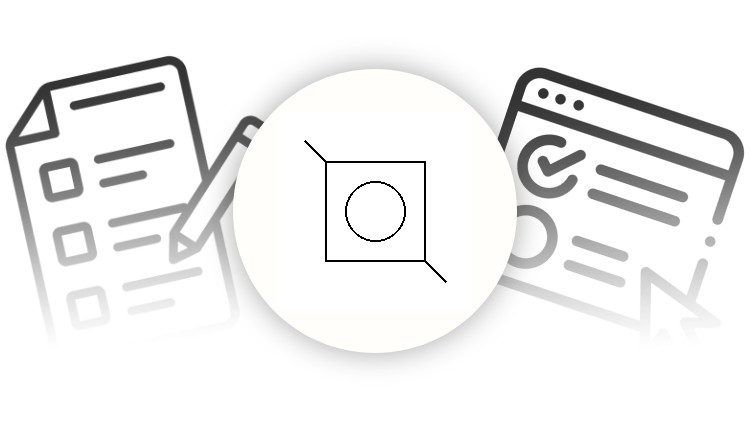Object Oriented Programming OOPs MCQ [2024]
- Description
- Curriculum
- FAQ
- Reviews
300+ Object Oriented Programming OOPs Interview Questions and Answers MCQ Practice Test Quiz with Detailed Explanations. [Updated 2024]
Welcome to “Mastering OOP Concepts: The Ultimate MCQ Quiz Course for Aspiring Developers” – your comprehensive guide to acing Object-Oriented Programming concepts and excelling in your coding interviews and exams. Whether you are a budding software developer, a computer science student, or a professional seeking to brush up on your OOP skills, this course offers an engaging and interactive way to deepen your understanding.
What You Will Learn:
This course is divided into six meticulously crafted sections, each focusing on a core aspect of Object-Oriented Programming:
-
Introduction to OOP: Dive into the basics of OOP, exploring its advantages and disadvantages, and understand the fundamental concepts like Objects, Classes, Abstraction, Encapsulation, Inheritance, and Polymorphism.
-
Class and Object in OOP: Gain a solid grasp of Class Declaration, Object Instantiation, Constructors, Destructors, Class Properties, Methods, Access Modifiers, and the nuances of Static Methods and Properties.
-
Inheritance and Interfaces: Delve into Inheritance, Method Overriding, Abstract Classes, Interfaces, the implications of Multiple Inheritance, and the debate between Composition and Inheritance.
-
Polymorphism and Method Overloading: Understand the intricacies of Polymorphism, distinguish between Method Overloading and Overriding, explore Function and Operator Overloading, and grasp Late Static Binding and Covariant/Contravariant Return Types.
-
OOP Design Principles: Master the SOLID principles, the DRY principle, the Law of Demeter, and learn the philosophy of Composition Over Inheritance. Enhance your knowledge with various Design Patterns and recognize common Anti-Patterns.
-
Advanced OOP Concepts: Explore advanced topics like Namespaces, Autoloading, Reflection, Serialization/Deserialization, Magic Methods, and Dependency Injection.
Course Format (Quiz):
This course is uniquely structured as an interactive quiz-based learning experience. Instead of traditional lectures, you’ll engage with a series of multiple-choice questions (MCQs) covering a wide range of topics in Object-Oriented Programming. This format is designed to enhance your learning retention, challenge your understanding, and prepare you for real-world applications and interviews.
We Update Questions Regularly:
Our commitment to your learning journey is reflected in our regular updates to the course content. We continually add new questions, refine existing ones, and stay abreast of the latest trends and changes in Object-Oriented Programming. This ensures that you are always learning the most current and relevant information in the field.
Examples of the Types of Questions You’ll Encounter:
-
Basic concept questions to solidify your understanding of OOP fundamentals.
-
Scenario-based problems that simulate real-world challenges and applications.
-
Code snippets for analysis and correction, enhancing your debugging skills.
-
Comparative questions that require critical thinking to distinguish between similar OOP concepts.
-
Advanced theoretical questions that delve into complex OOP principles and design patterns.
Frequently Asked Questions (FAQs):
-
What is Polymorphism in OOP?
-
Polymorphism is the ability of an object to take on many forms. It allows methods to perform different functions based on the object that invokes them.
-
-
How does Inheritance improve code reusability?
-
Inheritance allows a new class to inherit properties and methods from an existing class, thereby promoting code reuse and reducing redundancy.
-
-
What is the difference between an Abstract Class and an Interface?
-
An abstract class can have both abstract and concrete methods, while an interface can only have abstract methods (until Java 8 introduced default methods).
-
-
Why are Design Patterns important in OOP?
-
Design patterns provide tested, proven development paradigms, helping developers solve common design issues in a more efficient and optimized way.
-
-
What is the SOLID principle in OOP?
-
SOLID stands for Single Responsibility, Open/Closed, Liskov Substitution, Interface Segregation, and Dependency Inversion. These principles guide the design and architecture of software for better maintainability and scalability.
-
-
How does Encapsulation enhance security in OOP?
-
Encapsulation hides the internal state of an object and only exposes functionality in a controlled manner, which helps maintain data integrity and security.
-
-
What is Constructor Overloading?
-
Constructor overloading is the process of having multiple constructors within a class, each with a different set of parameters, allowing objects to be initialized in different ways.
-
-
Can you explain the concept of ‘Composition over Inheritance’?
-
This principle suggests using composition (including objects of other classes as members) over inheritance (extending classes) for code reuse, to avoid the complications of deep inheritance hierarchies.
-
-
What are Magic Methods in OOP?
-
Magic methods are special methods in OOP languages (like Python) that have double underscores (e.g., __init__, __str__) and provide special functionalities or are invoked automatically under certain circumstances.
-
-
How does Dependency Injection enhance modularity in OOP?
-
Dependency Injection involves providing objects that an object needs (its dependencies) from outside, thereby making the code more modular, testable, and maintainable.
-

External Links May Contain Affiliate Links read more





